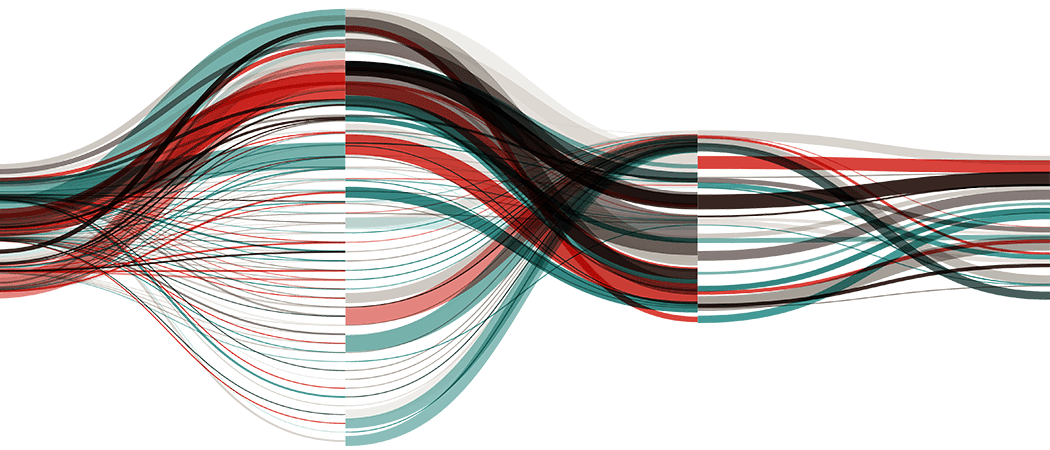TEXT: MARIBEL SOLANAS, CHIEF DATA OFFICER DE MAPFRE | IMAGES: ISTOCK, MAPFRE
It’s been a few years now, but I still remember when all this Data business wasn’t so “trendy,” and when saying that you studied math made you sound like a bit of a “square.” So you truly did need to feel a calling of sorts, because in those days the professional opportunities weren’t particularly attractive, and the type of education you needed didn’t have many real-world applications. What a pain it is to have to choose between humanities or sciences! Why should we have to choose?
Fortunately, time heals almost everything, and those stereotypes are long gone. Nowadays, data is everywhere, and we all make use of it in one way or another
in our day-to-day.
Intuition is no longer enough; we now have the ability to improve our decision-making through efficient information analysis.
Without a doubt, we live in a society surrounded by learning-based predictions. Machine learning algorithms, deep learning, and artificial intelligence are already part of our daily lives. While we may not see them, we do see their results: shopping recommendations, health habits, risk prevention, etc. They are even better than us at choosing a partner! I don’t think it’s a trend; it’s here to stay and will continue to give us a lot to talk about.
But what has changed? What’s the difference between what we used to do and what we do now?
Before, data was scattered across different silos, and we searched for it, cleaned it, and transformed it into integrated information. Then, we applied statistical analysis and a lot of practical business expertise to turn it into knowledge we could harness to improve our results. The most important thing was to take great care of the data, because if it wasn’t reliable, everything else was useless. In fact, this process is perhaps even more important now!
The difference is that, today, data management and analysis capabilities have improved greatly and are evolving very fast. Data is growing exponentially in volume and diversity, technologies store and process data in a way that was unimaginable until recently, algorithms are run in real time, and data from multiple sources can be connected.
Data is all around us! Whether it’s a video, an image, or the footprint of a query on a website. The notion that data is only found in company databases is a thing of the past. Because of all this, we are increasingly able to reach a high, precise level of personalization, or “hyper-personalization.” The trick to getting it right is excellent management of data quality and connection, which are its valuable and abundant raw materials.
Will technology gradually replace the function of our neurons?
I think it will be quite the opposite. Nobody doubts its potential and its benefits, but we need to be wary of the legal and ethical boundaries and address them appropriately. As customers, it’s a nice feeling to receive personalized messages, but no one likes to feel like our privacy is being violated or that our private life is being intruded upon. Technology is not the limiting factor; in fact, it can be very helpful in establishing controls, alerts, and business rules while also detecting reputable sources and eliminating biases, etc.
It’s up to the people working in companies to find the balance. This is not just about complying with the law, but also about establishing an ethical protocol that addresses the type of data we use and the implications for using the knowledge we extract. I believe that sometimes it’s better to sacrifice some degree of accuracy in the algorithms or to reject data sources that are dubious or when the customer may not have given permission for their use. We are vying for their trust, which is hard to come by and easy to lose. Also, let’s not forget about the viral effect — we’re all connected! That’s why we not only open the customer’s trust to risk, but also their social and family environment, with a possible impact on social networks.
“At MAPFRE, we make strategic decisions on how to manage and harness Data in our business processes, aware that both factors are increasingly critical to the company’s bottom line.”
What are we, at MAPFRE, doing in the face of this data revolution?
I think the better question is: what are we not doing? At MAPFRE, we make strategic decisions on how to manage and harness data in our business processes, aware that both factors are increasingly critical to the company’s bottom line.
Diría yo, ¡qué no estamos haciendo!
New opportunities are springing up in the market all the time. But assessing and applying the benefits of this whole ecosystem is becoming increasingly complex. Issues such as data criticality, information quality, base architectures, security, privacy, working models, technology connectivity, specialized knowledge, etc. are fundamental to the future development of MAPFRE’s operation.
We know that it is necessary to make decisive progress in the implementation of the different measures and projects, and assessing how to move forward against this backdrop requires a distinct perspective and updated knowledge base to avoid initial biases. We must consider the benefits produced by the synergies that arise between various areas and/or processes under an established control model, avoiding vertical approaches that do not take into account the data life cycle in its entirety.
Coordination in the development of capabilities, integration of data from different processes, and prioritization based on business impact metrics are the quintessential challenges of the internal transformation process with regard to data. All this effort will gradually allow us to achieve our final objective, which is none other than to capitalize on the value of data in our business strategies.
Synergies, integration, connectivity, knowledge… It’s all related to all of us, the employees at MAPFRE
At MAPFRE, we’re working hard to address this area. It’s not easy; it requires a solid management of change strategy. But we’re not starting from zero. It’s essential to apply learnings from all our previous experience, bringing what they have to contribute to the present moment, because the Data has always been there. Insurance companies and MAPFRE in particular carry it their DNA.
In my view, this is one of the main challenges in the process of transformation toward a Data-Driven model. We must find ways to combine strengths in teams working toward the same objectives. Finding ways to connect experiences, skills, knowledge, etc. to new, much more collaborative and flexible ways of working is key.
No one should feel excluded — quite the contrary! Internal talent is being nurtured through specific training enriched with external recruitment when necessary. It’s not enough to bolster our analytics teams; we must also put together multidisciplinary teams which base their use of data on a rigorous knowledge of the business, in a way that is fully aligned with the company’s strategic objectives and, of course, with new skills in technology and people’s knowledge. Talent gets multiplied at MAPFRE when we connect people who have more experience and internal knowledge with those who bring more innovation and new knowledge.
I like to think that Data unites us and makes us stronger. It is the most transversal element of the company, and if the areas, teams, processes, and channels generate new ecosystems and new ways of relating to each other, we will dissolve the barriers and multiply the benefits.

“Data unites us and makes us stronger.”
Maribel Solanas, Group Chief Data Officer de MAPFRE
How are we getting organized at MAPFRE?
Toward the end of 2019, MAPFRE decided to create the “Data Governance” role in an effort to help manage data as a strategic asset for the company. Over the course of the first two years and despite the pandemic, solid foundations were erected, including the Corporate Policy and the installation of Data Governance offices at the corporate, country, and business unit levels.
Within the scope of the 2022-2024 strategic cycle, and in general, MAPFRE has stressed the importance of protecting and harnessing Data in our business results. We are trying to establish a global Data project conditioned by and at the service of our main business priorities, establishing a clear link between business strategy and what we do with data.
To facilitate the transversal and coordinated implementation of initiatives related to Data management, MAPFRE recently approved the transformation of the Data Governance Office into the Corporate Data Division (CDD). This will reinforce the body with additional competences without sacrificing its structural function.
The Corporate Data Division shall act as a transversal Competence Center responsible for driving and managing the main aspects of the Data strategy at MAPFRE.
This center is defined as a multidisciplinary team with expertise in the main aspects of Data (governance, technology, security, and analytics) and is capable of offering a robust and comprehensive approach to Data-based decision-making and its use for business purposes. Likewise, it will stress training, management of change, and foresight as key elements for the continuous development of Data disciplines across the company.
It also aims to identify, unify, and formulate best data practices based on MAPFRE’s knowledge and experience in countries, units, and corporate areas. In short, we hope to bring about robust execution and practical application in operational data management through a more effective coordination of capabilities that will help us to spur the transformation on the basis of common and shared objectives.
An exciting challenge that requires all our efforts!
I would like to thank all colleagues who include or plan to include changes in how they handle data under their responsibility every day. Those who believe that by looking out for quality, they are optimizing our relationship with customers. Those who seek new ways of sharing information and generously promote knowledge transmission.
And those of us who work in Data and who do not have parallel agendas — we are here to service and support business. We may use technical jargon and complex terminology specific to the role, but our language is none other than the impact on the income statement, profits through compliance, cost savings, new business, etc.
You’re all invited to join us! We need your help; each one of you plays an important role in getting the data right and acting on what is of most concern and interest to us at the company level. Because the more of us there are, the less we will talk about data in the abstract and more about the improved results we are obtaining thanks to the care we put into each and every piece of data.
Principles of Data Governance
The general principles of Data Governance at MAPFRE lay the foundations for the relationship of all company members with data:
- Data governance is everyone's responsibility.
- All data must be governed rigorously.
- Data needs to be understood as a strategic asset of the company and, as such, it must be properly protected and managed.
- Data must comply with internal and external rules.
- The quality and security of the data must be guaranteed throughout the entire life cycle.
- Data governance is a business discipline, not a project.
- Management of change is key to Data Governance.
- Everything must be quantitatively measurable.
Main objectives of corporate data management
Optimize resource allocation and prioritize projects according to their impact on the business strategy.
Foster collaboration and cohesion between teams by supporting governance and communication between them.
Build a collaborative community where all can benefit from the information they need while contributing new ideas.
Ensure that security and privacy requirements are respected at the outset of any new data initiative.
Consolidate best practices and leading technologies, certifying and disseminating efficient processes.
Identify new opportunities and leverage the Group’s data to drive new solutions or business breakthroughs, increasing our competitive advantage.
Measure and monitor the profits obtained through data-related activities in qualitative and quantitative terms and establish quantitative metrics related to quality, use, costs, and benefits for the data used during each of the Group’s operations.
Define and establish the standardized processes, methodologies, guidelines, and tools in order to monitor and analyze the model’s performance and the precision of the data.
Gather data experts to provide benchmarks, retain talent, optimize training, and expand the Group’s data culture.
“In short, we hope to bring about robust execution and practical application in operational data management through a more effective coordination of capabilities that will help us to spur the transformation on the basis of common and shared objectives.”




